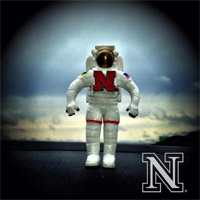Law, College of

Space, Cyber, and Telecommunications Law Program: Faculty Publications
Date of this Version
2008
Abstract
It is a great honor and an equally great pleasure for me to stand here today and address you by way of an inaugural lecture, embedded in this conference on formalism and informalism in space law that we are currently hosting at the University of Nebraska College of Law.
An inaugural lecture then is perceived essentially as a public lecture where a newly-appointed professor sets out, for everyone to hear, his or her general ideas on, and programmatic approach to, the field that he or she is going to tackle in teaching and research-in my case, all in the context of the LL.M. Program in Space and Telecommunications Law. What are perceived to be the key issues, in which direction is the academic discipline going, and what can we do about it? This also has the happy side-result of revealing one's hobbyhorses to the audience.
At the same time space law is coming to Nebraska with the establishment of the LL.M. Program in Space and Telecommunications Law, space is coming down to earth, too. Do not worry; I am not Chicken Little's brother. But "space," as an area for humans to be active in, in a metaphorical sense is coming down to earth, and that results in many important consequences for "space law," for what it is, how it should be studied, and how it should be further developed. The red thread in my talk, then, is that in the history of space we are currently living through a very fundamental paradigm-change that has fundamental consequences for the way in which this strange discipline called "space law" will have to be taught and researched. At the very least, it will be the way in which I will approach my teaching assignments in the context of the new LL.M. Program at UNL.


Comments
Published in Nebraska Law Review 87 (2008-2009), pp. 498-515. Copyright 2008 Nebraska Law Review.